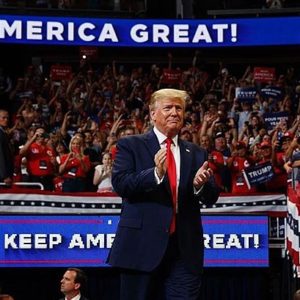Editor’s Note: For another viewpoint, see Counterpoint: Donald Trump and the Mendacity of Fear
Yes, President Trump deserves a Nobel Peace Prize. He’s just brokered a landmark shift in the Middle East, in which two Arab nations — the United Arab Emirates and Bahrain — have normalized relations with Israel.
On Tuesday, Trump hosted a ceremony at the White House with officials of all three nations, where they signed “The Abraham Accords,” named for their shared biblical heritage, and accompanied by a joint declaration welcoming “the progress already made between Israel and its neighbors in the region” and praising the continuing efforts to expand such friendly relations, in the interest of “lasting peace in the Middle East and around the world.”
Talk of peace has usually been more mirage than reality in the Middle East, but there are signs that after decades in the desert this is a realignment toward the real deal. Trump’s approach was to bypass the intransigent Palestinians, whose bosses have refused repeatedly to bargain in good faith with Israel.
Instead, Trump focused on bringing together Israel and some of the Arab states based on a shared interest in countering the threat of Iran. That’s a solid basis for prying loose some of the logjams in which no Arab nation has recognized Israel since Jordan in 1994 and Egypt in 1979.
Other Arab countries are showing interest in joining this club. Oman and Sudan sent envoys to attend the Abraham Accords signing ceremony at the White House. Last month, when Israel and the UAE opened direct air traffic for the first time, Saudi Arabia cooperated by opening its air space to allow Israeli commercial overflights — also for the first time.
These are big developments, the groundwork for a coalition that could help Israel, Arab nations and the United States in facing down the threat of the brutal and predatory regime in Iran, while fostering, at long last, Arab-Israeli ties conducive to prosperity and peace. No wonder this approach inspired a member of the Norwegian parliament to nominate Trump for a Nobel.
That said, there’s almost no chance the Nobel Committee will opt for Trump. Not only is he a controversial American president, but the Nobel itself is an oddball prize.
While widely revered as one of the world’s top honors, the Nobel has been awarded over the years to an eclectic mix of true heroes, inept visionaries, and, on occasion, malign actors. If you ever find yourself wondering what Mother Teresa and Yasser Arafat had in common, they were both Nobel Peace laureates.
The criteria for the prize are a muddle, dating back to confusion on the part of the founder, Alfred Nobel, about how best to engender peace. Nobel stipulated, reasonably enough, that the prize should go to “the person who shall have done the most or the best work for fraternity between nations.”
But Nobel also wanted the prize awarded to those who had done the most to achieve “the abolition or reduction of standing armies” and “the holding of peace congresses.” That sounds good, but depends heavily on the circumstances.
Reducing standing armies can be fatal to deterrence, in some cases inviting war rather than preventing it. Likewise, peace congresses, per se, do not always ensure peace. President Woodrow Wilson won a Nobel for founding the League of Nations, an organization that began with the Treaty of Versailles and ended with World War II.
Since the Nobel was first given out, in 1901, four American presidents have won the Peace Prize: Theodore Roosevelt in 1906, Woodrow Wilson in 1919, and — more recently — Jimmy Carter in 2002 and Barack Obama in 2009. Both Carter and Obama talked a lot about peace, but pursued policies of appeasement that emboldened enemies of freedom and invited conflict.
Carter’s tenure saw the Islamic revolution in Iran, and the Soviet invasion of Afghanistan. Obama failed to counter the rising aggression of Russia and China, led from behind as the Arab Spring spawned ISIS, and produced an Iran nuclear deal that did not block Iran’s path to the bomb.
For an illuminating contrast, look to President Ronald Reagan, who built up the American military, stood up to the Soviet Union and won the Cold War. But Reagan never won a Nobel Peace Prize. Neither did World War II victors Franklin D. Roosevelt and Winston Churchill (though he did win one for literature).
As far as the Nobel represents a high honor, Trump deserves it for the Abraham Accords. But if he doesn’t win it, he’s in good company.

